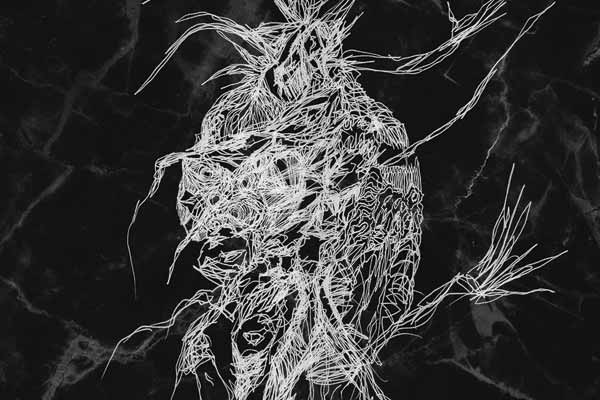Glenside’s Z-Ward is a foreboding structure.
Its very walls are somehow imprinted with the turmoil and despair emitted by the state’s criminally insane over the course of almost a century.
Dark Matter, an audio-visual festival curated by Michael Ellingford and Liam Somerville, will inhabit this haunted structure and examine the notion of ‘the other’. It will not be your typical night out at a gig, as Liam explains. “We’re really trying to make the whole experience, from the second you get to the front gate until the last, an encompassing experience.
“We enjoy to rock up and not know what to expect and to be taken on a journey; I live for those experiences, whether it’s in film or art or general adventuring in the world.”
There will be a rogue’s gallery of local and interstate noise artists: Sydney’s dynamic Kusum Normoyle; the dark ambience of ISOMER; droning guitar loops from Eyes More Skulls Than Eyes; DÄRKNIFE’s techno spawned from an ’analog tech-nerd dungeon’; the brutalist noise of BILES and Ellingford himself, collaborating with Swanborough to merge electronics with cello.
There will also be DJs, tattoo artists and visual artists either roaming or occupying the vacant cells of the asylum, as Michael explains. “We’re going to try and fill the cells, as many as we can get, so that you can walk into the cells and have an interactive experience with someone’s art.”
Dark Matter seeks to fill the void left by previous outlets for noise artists, such as the Adelaide Festival’s Unsound and Lost City. Michael and Liam are both motivated by a sincere passion for the local scene. “I don’t think anyone has necessarily passed the baton onto us formally,” Michael says.
“But I think we’ve just picked up the ball where it’s been dropped because we’re pretty enthusiastic about what’s going on here and we want to keep SA going.”
The space that Dark Matter occupies serves an important function in the global, artistic discourse. “[We’re] not trying to be dangerous or hurt people or ignore safe spaces or anything because all those things are really important,” Liam says.
“But often things get brushed to the side or away because [they] could be deemed too intense. We’re very conscious that there’s a line there and where to tread but sometimes people get confused by the politics of it at the expense of boundary-pushing art.”

